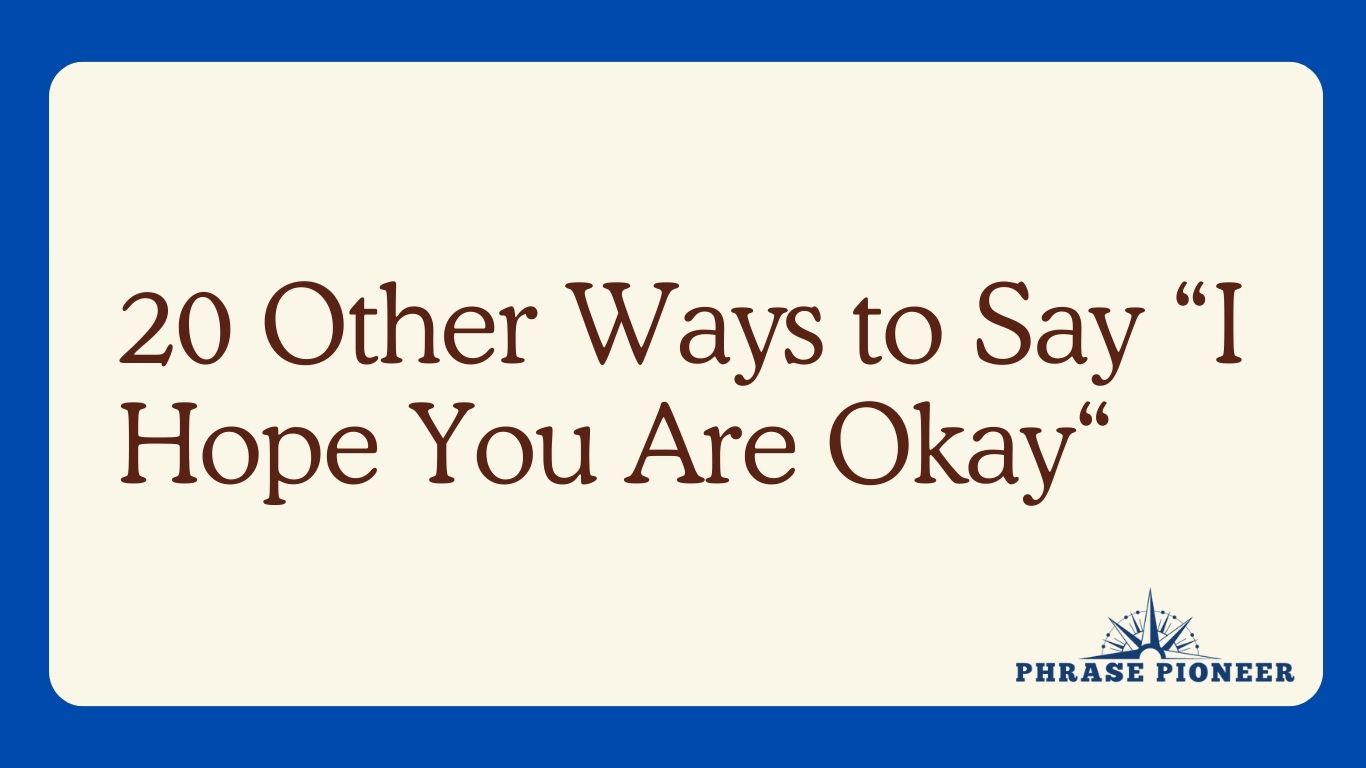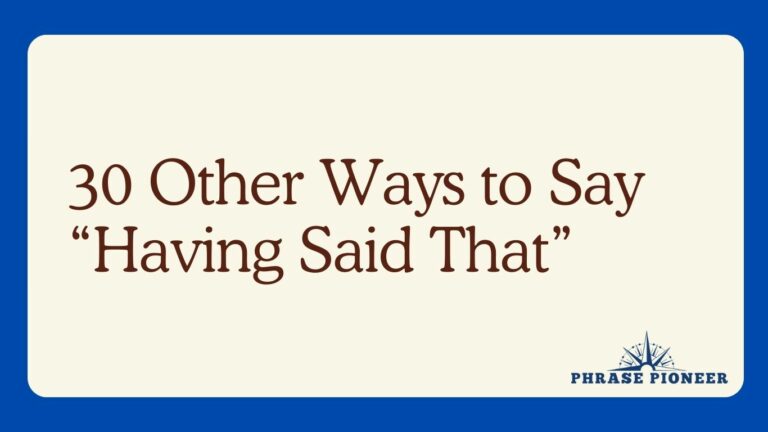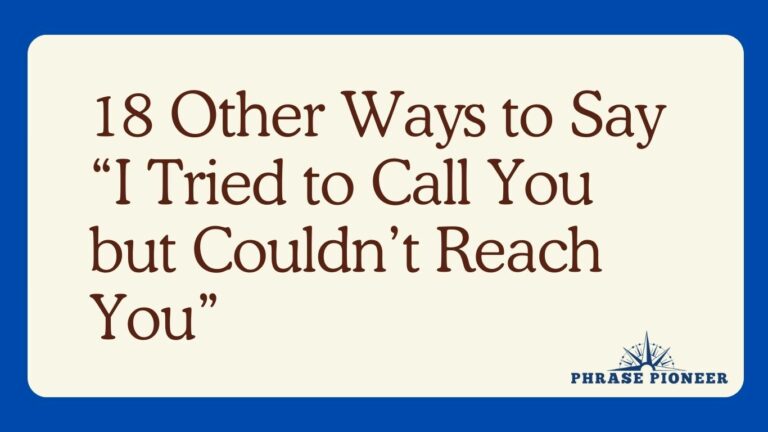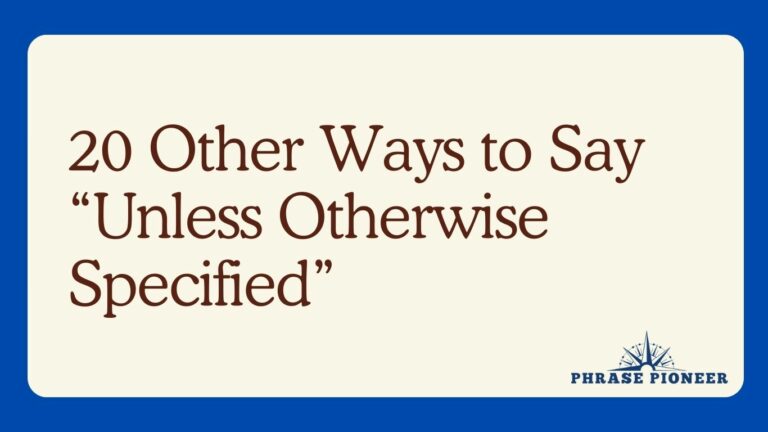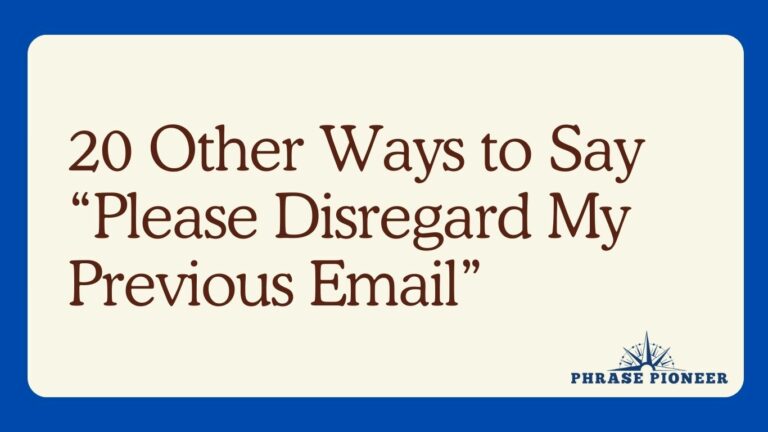20 Other Ways to Say “I Hope You Are Okay“
Expressing concern with the phrase “I hope you are okay” is a kind and common way to show you care about someone’s well-being.
However, there may be times when a different choice of words can better suit the situation, convey sincerity, or match the level of familiarity between you and the person you’re addressing.
Below are 20 alternative ways to check on someone’s state, each with an example sentence and an explanation to guide their use.
Casual Concern
- Is everything alright?
- Example: “You seem a bit distracted today—is everything alright?”
- Explanation: A simple, conversational way to inquire about someone’s well-being.
- Are you holding up okay?
- Example: “After hearing about the storm in your area, I wanted to ask, are you holding up okay?”
- Explanation: Casual, yet indicates concern, especially after the person has gone through a challenging situation.
- Just checking in on you
- Example: “I heard about your recent job loss; I’m just checking in on you.”
- Explanation: A friendly, caring approach that’s less direct but shows awareness of recent events affecting them.
- You good?
- Example: “That meeting looked intense! You good?”
- Explanation: Very informal and succinct, often used between friends or colleagues in a relaxed environment.
- Everything’s okay on your end?
- Example: “I noticed your project deadline is approaching—everything’s okay on your end?”
- Explanation: An informal way of asking about someone’s situation, with a specific focus on a recent event or responsibility.
Compassionate Outreach
- I’m here if you need to talk
- Example: “I’m here if you need to talk, no matter the hour.”
- Explanation: Offers support and indicates a readiness to listen, which can be comforting to someone struggling.
- I’ve been thinking about you
- Example: “After the surgery, I’ve been thinking about you and hoping for a speedy recovery.”
- Explanation: Shows that the person has been on your mind, signaling personal concern.
- Wishing you well
- Example: “With all that’s been going on, I’m wishing you well.”
- Explanation: A thoughtful message that conveys hope for the person’s overall well-being.
- Are you feeling alright?
- Example: “You seemed out of sorts last we met—are you feeling alright?”
- Explanation: Directly asks about someone’s physical or emotional state.
- How have you been holding up?
- Example: “How have you been holding up since the move?”
- Explanation: Expresses concern and queries how someone is managing in the aftermath of change.
Showing Empathy
- You’re in my thoughts
- Example: “With the recent loss in your family, you’re in my thoughts.”
- Explanation: Communicates empathy by making it known that you’re actively thinking about their situation.
- Take care of yourself
- Example: “During these trying times, please take care of yourself.”
- Explanation: A caring reminder, focusing on the person’s self-care.
- Sending positive vibes your way
- Example: “Sending positive vibes your way, hoping things turn around soon!”
- Explanation: An informal way to express hope and positivity, wishing for someone’s circumstances to improve.
- I’m concerned about you
- Example: “You haven’t been yourself lately—I’m concerned about you.”
- Explanation: Openly states concern, indicating you’ve noticed a change that’s potentially worrying.
- Hope all is well with you
- Example: “It’s been a while since we last spoke; hope all is well with you.”
- Explanation: A gentle way to express concern without assuming that something is wrong.
Sincere Solicitude
- I trust you’re doing okay
- Example: “Considering the news, I trust you’re doing okay.”
- Explanation: Indicates confidence in the person’s resilience while subtly seeking confirmation of their well-being.
- I’m always here for you
- Example: “No matter what you’re going through, I’m always here for you.”
- Explanation: Communicates unwavering support and solidarity with the person’s situation.
- Hope you’re holding up alright
- Example: “With your workload piling up, I hope you’re holding up alright.”
- Explanation: Expresses concern, particularly in the context of increasing stress or responsibility.
- Are you managing okay?
- Example: “Now that you’re a new parent, are you managing okay with the sleepless nights?”
- Explanation: A non-invasive inquiry that shows awareness of the challenges the person may be facing.
- Just wanted to make sure you’re okay
- Example: “With all the recent changes, I just wanted to make sure you’re okay.”
- Explanation: Conveys that you are taking the initiative to check in, driven by genuine concern.
These alternative expressions can provide comfort and show solidarity, empathy, or support to someone who might be going through a tough time, or just as a check-in to show you care.
The level of formality and directness can be adapted based on your relationship with the person and the particular context.

